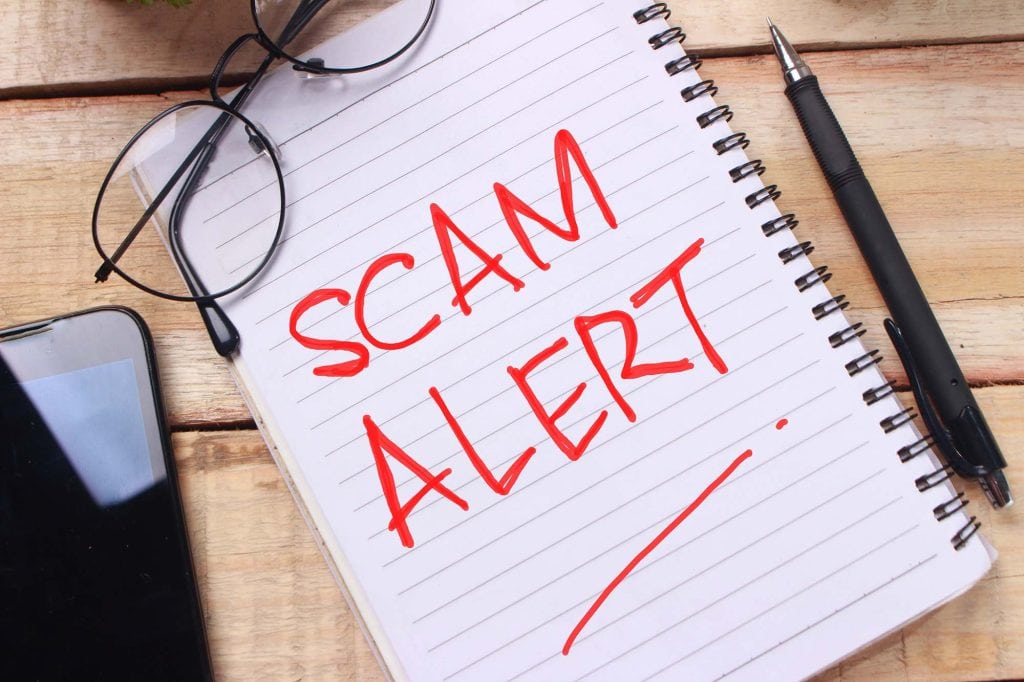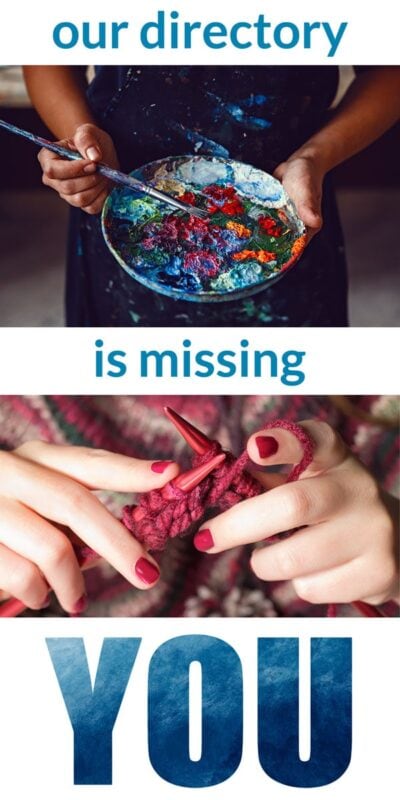5 Ways to Protect your Event from Scammers

Unfortunately, scamming legit events has become a serious issue that has only increased over time, especially on social media platforms. Facebook groups that are not heavily moderated are rife with fake events, doctored event flyers, and brand new Facebook profiles looking for busy folks who might be rushing, distracted, or new to the world of events. We have covered how to avoid craft show scams for vendors and shoppers, but how does one advertise their event without opening themselves up to fraudulent activities?

The Scam
One of the most common Facebook scams these days involves posing as the event coordinator for actual craft shows and events in general. The event flyer looks legit because it is. The event information checks out because that event is real. But the private messages, texts, and emails that vendors are receiving may not be from the actual event coordinators. Fake event coordinators and event scammers reach out to as many vendors as they can, hoping a few of them will be too busy, distracted, or new to notice that the contact information doesn’t check out.
“But how did they get my info?”
That’s a great question. The most common pathway appears to be folks who are commenting or reacting with event posts, whether that be on the actual event page or in a variety of Facebook groups. Craft show scammers seem to be patrolling posts on Facebook and messaging anyone who comments to see if they can get away with scamming their booth fee out of them. Sometimes vendor information is harvested off of the internet or hijacked by mailing lists that events may have created and unknowingly included an event scammer.
Unfortunately, there are a lot of ways for these event scammers to reach potential vendors, and combatting their efforts to falsely represent your event can seem daunting if not impossible.

Get online
Some event coordinators might think the only answer to avoiding getting caught in a sticky situation is to avoid posting on the world wide web entirely, but this approach stunts your event’s exposure and greatly reduces your ability to grow both your shopping and vending audiences. Instead, I encourage event coordinators to be thoughtful about building a reputable online presence for their event as soon as possible.

Reputable Sources
It is more important than ever to have your official event information out there on reputable websites so that folks who are doing their research before signing up can easily verify event details and contact information. That is part of what I do here at DFW Craft Shows. I create an official, reliable resource fill with event information for hundreds of events each year.
Every single event submitted to our website–well, the legit ones, anyway–is reviewed and crafted into an organized, easy to scan event listing that clearly list contact information, the vendor application process, and any other relevant event details. Our event listings make it as easy as possible for vendors to find all the event information they need to confirm that the person contacting them is ACTUALLY ASSOCIATED with the event.

Exploring other options
When you create an online presence on a trustworthy website, vendors and shoppers are no longer left to dig around for event details, vendor applications, or contact information. They don’t have to ask random folks online who they should contact and risk an onslaught of fraudulent responses. They don’t have to wonder if an event contact looks legit. It’s all right there, presented in an easy to scan format, from an established and safe source.
But what constitutes a “reputable website”? Well, that can be tricky. It is important to look at this from a vendor’s stand point and think about what would be most credible for your own event. Anyone can create an event listing on those massive event sites that have little to no oversight. So what does a trustworthy website look like?

Associated Organizations
Have some kind of web presence established for your organization. If your event is associated with a school, non-profit, church, or other established organization, make sure your event information is prominently featured on their website alongside the event’s official contact details.
You can even take it a step further and explain where applications will be sent from and/or where payments will be sent to reduce any possible confusion. The more information you provide, the less you leave up to a event scammer’s imagination.

Get Social
Log onto Facebook and create an official event page. Be sure to connect it to your official Facebook page and include links to your official website. Include your official contact information and links to those reputable websites we discussed earlier. DFW Craft Shows is great for this too, as we will also include a link back to your social media on your event listing.
If you do not create an official Facebook event, well meaning vendors and shoppers will create one for you. Having third parties create your events for you can lead to other issues. Event pages that are unmonitored can become the perfect breeding ground for scammers. They stalk the discussion page and pick up unsuspecting prey, leaving you none the wiser without event notifications being sent to your account. Which leads me to another important point.

Everything in Moderation
If you have any kind of presence on social media, whether it is a Business Page, Event Page, or posts for vendors that you’ve created in those mostly unmoderated groups I mentioned earlier, you need to stay present and MODERATE those posts! Frequently, events post their information online and then ghost the comments. Those comment sections are FULL of scammers trying to pick up unsuspecting vendors. Don’t rely on Facebook or good citizens to keep things on the up and up. Check those comments daily and delete/report the riffraff.
Of course, I would also recommend doing your vendor calls in groups that ARE heavily moderated. DFW Craft Shows has a team of admins in our Facebook Community Group trying to keep scammers at bay, and we can help you find vendors while also doing some of the moderation work for you.

Get creative
When designing your event flyers and vendor call graphics, always be sure to integrate your official contact information. Notice I said integrate and not include–there is a reason for that. Many craft show scammers collect legit event flyers and simply cut off the bottom of the graphic with all the official contact information on it. They may repost the event flyer without any contact information or add their own, posing as the event coordinator for your event.
It is no longer enough to simply add contact information to the very bottom of your event flyers or graphics. Instead, place your contact information and/or QR code somewhere that is not easily cropped off. Finding a way to integrate your contact information into the event flyer fully, rather than appending it to the bottom, will make it a little harder for them to use your official marketing materials as their own.

Educate
Once you have your online presence and an established group of vendors, don’t forget to educate them on how your event works AND how they can keep themselves safe from fraudulent activity. Pass long resources like our How to Avoid Event Scams Guide, where we walk vendors through how to find creditable event information, vet their sources, and provide examples of actual craft show scams that have crossed our desk.
Educating your vendors is an incredibly important step. It may even be the MOST IMPORTANT STEP. It is ambiguity and ignorance that gives scammers the power to take advantage of folks. The more we educate each other on how to safely find event information and what red flags to look out for, the less powerful they become.
Chime in!
Whether as an event coordinator, vendor, or shopper, what do you feel like is the most important safeguard against craft show scams? Share your ideas below and let’s grow and learn how to protect our arts & crafts community together.

Originally posted on November 04, 2024.








My biggest problem with many event coordinator is that they want payment by cash, check or other sent to them. This is the 21 Century and electronic payment is available also its traceable. I can stop a payment if I use plastic, I cant if I use cash or check….also with a check the scammer can perform identity fraud off the numbers on the bottom of your check. I have several great shows that want to do their monies that way and I cant do it, as I have had identiy fraud in my life…its hard to shake and once you get it you NEVER want it again.
Doesn’t that leave the event coordinator vulnerable to chargebacks if a vendor stops payment after an event?